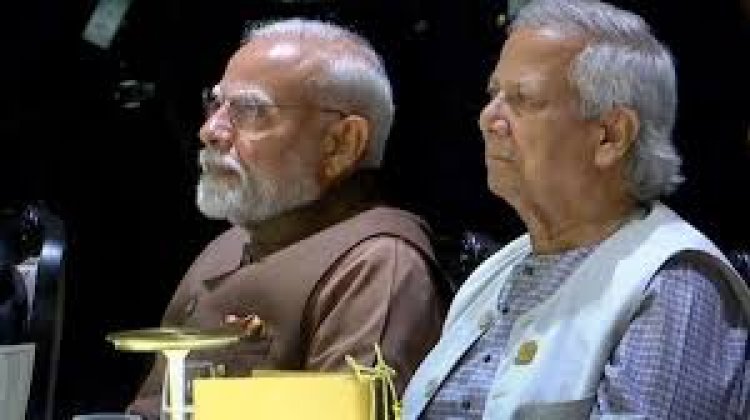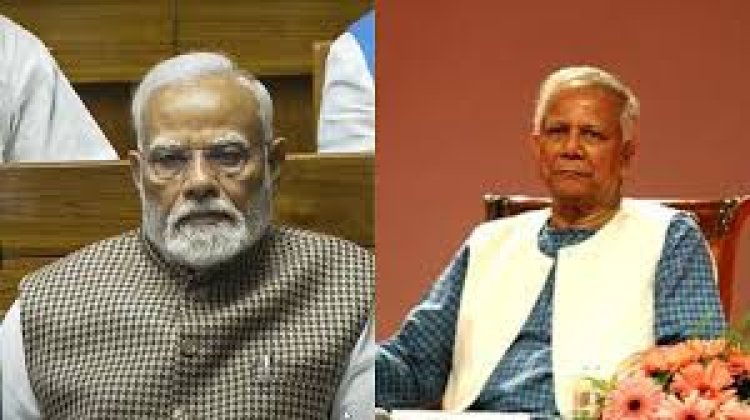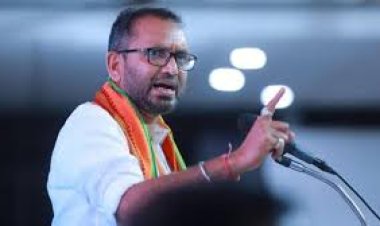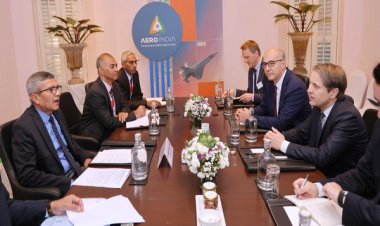BIMSTEC 2025: Will India Give the Green Signal for Bilateral Talks with Bangladesh?
Modi-Yunus informal interaction sparks speculation on Indo-Bangla relations, PM Modi and Bangladesh’s Muhammad Yunus Meet at BIMSTEC Summit: Key Talks on the Horizon?

Highlights:
- PM Modi and Muhammad Yunus shared a table at the BIMSTEC Summit’s official dinner.
- Bangladesh is awaiting India’s confirmation for a formal bilateral meeting.
- Key issues include security, regional stability, and the Rohingya refugee crisis.
- India remains concerned over Bangladesh’s deteriorating law and order situation.
- Bangladesh to officially assume BIMSTEC chairmanship on April 4.
Bangkok : Prime Minister Narendra Modi and Bangladesh’s interim government Chief Advisor, Muhammad Yunus, shared a table during the BIMSTEC Summit’s official dinner in Bangkok, hosted by Thai Prime Minister Paetongtarn Shinawatra on Thursday, April 3. Their interaction has sparked discussions on the possibility of formal bilateral talks between the two nations.
A photo posted on Bangladesh’s official government handle showed both leaders seated together at the dinner table, alongside other BIMSTEC leaders. Bangladesh’s local media, quoting the chief advisor’s deputy press secretary, Abul Kalam Azad, confirmed the brief exchange.
Bangladesh Awaits India’s Approval for High-Level Talks
Bangladesh’s interim government is eager to host a bilateral meeting between Yunus and PM Modi on the sidelines of the BIMSTEC Summit. However, officials in Dhaka indicate that they are waiting for India’s confirmation before proceeding with formal talks.
High-ranking Bangladeshi diplomat Khalilur Rahman has hinted that the Rohingya refugee crisis and other pressing regional issues may feature in discussions among BIMSTEC member states. “There is a strong possibility of a meeting between Yunus and Prime Minister Modi,” Rahman said in a press briefing held in Dhaka before the summit.
Meanwhile, Bangladesh is set to officially take over the BIMSTEC chairmanship on Friday, adding another layer of significance to diplomatic interactions at the summit.

India’s Concerns Over Bangladesh’s Internal Stability
In recent months, New Delhi has been closely monitoring Bangladesh’s political situation, particularly the deteriorating law and order under the interim administration following the August 2024 collapse of Sheikh Hasina’s Awami League-led government.
The release of extremist elements and the reported failures of the interim government in controlling attacks on religious minorities—especially Hindus and the Ahmadiyya community—have raised concerns within India’s Ministry of External Affairs (MEA).
MEA spokesperson Randhir Jaiswal recently stated, “India supports a stable, peaceful, and inclusive Bangladesh where issues are addressed through democratic means and participatory elections. We are concerned about the deteriorating law and order, exacerbated by the release of convicted violent extremists.”
PM Modi’s recent letter to Yunus on Bangladesh’s National Day also underscored the importance of mutual trust, historical ties, and regional stability.
While India remains cautious about endorsing Bangladesh’s current interim setup, the Modi-Yunus meeting at BIMSTEC signals continued diplomatic engagement. The coming days will reveal whether this interaction paves the way for formal talks or remains a symbolic gesture amid shifting South Asian geopolitics.

 BNH NETWORK
BNH NETWORK 










